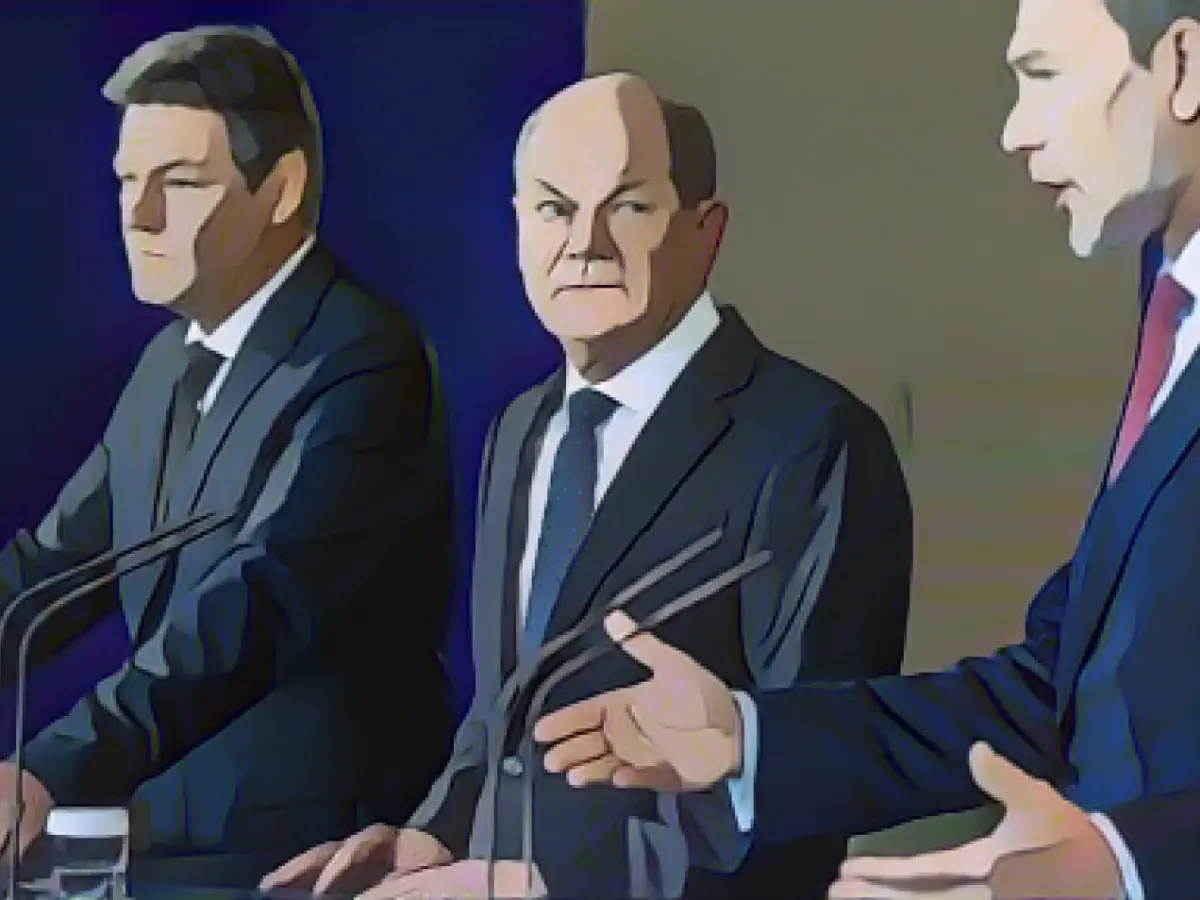Federal Cabinet Grapples with Budget Aspirations for 2024
A week after coalition leaders sealed a budget accord, the federal cabinet delves into the nitty-gritty of the cuts planned for the ensuing year. Steffen Hebestreit, the government spokesman, confirmed that the intricacies of the agreement would be revealed to the ministers.
The Finance Ministry has commenced technical implementation of the arrangement and, in collaboration with the federally related ministries, is swiftly drafting the requisite jargon for the German Bundestag.
Last Wednesday, the trio of Olaf Scholz (SPD), Robert Habeck (Greens), and Christian Lindner (FDP) secured a consensus on rectifying billions in budget holes following a ruling by the Federal Constitutional Court. However, certain provisions of the agreement continue to provoke political controversy – even within the coalition. Still, they aim to endorse the 2024 budget in the Bundestag by the end of January.
Alexander Dobrindt, the CSU regional group leader, notably voiced stern criticism. He insinuated that the coalition had resorted to trickery and that they were plundering taxpayers' finances unnecessarily. He ascribed this manipulation to their decision to preserve the heating law rather than abolish it.
The anticipated budget disparity amounts to nearly 30 billion euros. To bridge this chasm, savings of approximately 17 billion euros in the core budget for 2024 and revisions to the Climate and Transformation Fund (KTF), which invests in modernizing the economy, would be required.
Hebestreit disclosed that these savings would be primarily achieved through the cancellation of climate-damaging subsidies, decreased spending by ministries, enhanced refugee integration into the labor market, and diminished federal subsidies.
In recent days, farmers in Berlin had gathered to denounce the planned dissolution of tax breaks for their sector. Cem Özdemir (Greens), the Agriculture Minister, echoed their sentiments and criticized these plans. The authorities propose imposing motor vehicle tax on agricultural and forestry vehicles and canceling the agricultural diesel tax concessions.
Other tenets of the savings strategy were outlined on Tuesday, such as the ticket tax for passenger flights increasing. Consequently, the proposal to impose a kerosene tax on domestic air travel has been shelved once more.
Additional highlights of the austerity measures include:
- Reductions in the budgets of the Foreign Office, Ministry of Economic Affairs, and Ministry of Development for international engagement (800 million euros combined)
- Lower federal subsidies for pensions (600 million euros)
- Military weapon purchases financed from special funds instead of the federal budget (saving 520 million euros)
- Manufacturers responsible for paying the EU's plastic levy instead of the federal government (anticipated income of 1.4 billion euros)
- Enhanced CO2 emissions cost for refueling and heating (40 to 45 euros per tonne)
- The Federal Employment Agency paying back 1.5 billion euros to the federal government
- Elimination of bonus payments for further training from the Citizen's Income and sanctions for total refusers (saving 250 million euros)
- Efforts to foster refugee integration into the labor market, including stricter measures and sanctions (expected savings of 500 million euros)
- A reduction of 12.7 billion euros from the Climate and Transformation Fund expenditure.
It remains uncertain whether the debt brake will be suspended again. The federal government is considering whether to invoke the constitutional exemption for natural catastrophes to aid flood victims in the Ahr valley or suspend it later in the year if additional funding is required to support Ukraine.
Relevant Insights:
- The Federal Constitutional Court's ruling on the debt brake rule impacts the Reichskassen-Ordnung, limiting the annual federal deficit to 0.35% of GDP and prohibiting federal states from incurring new net debt[2][5].
- The upcoming snap election on February 23, 2025, focuses on fiscal policies and the potential modifications of the debt brake rule[3].
- Disagreements over how to bolster the economy contributed to the demise of the ruling coalition, with prospective candidates advocating disparate measures to tackle the economic stagnation[1].
[1] [2] [3] [4] [5]








